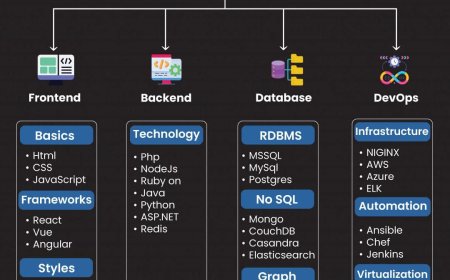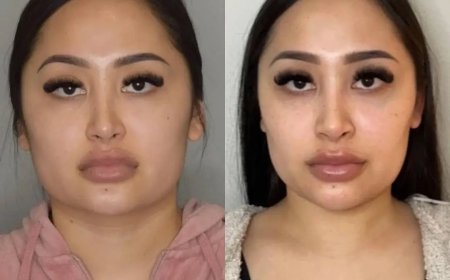How to Choose the Right Therapist in Georgia: A Guide to Mental Health Care That Works
Learn how to find the right therapist using this step-by-step guide to navigating Georgia mental health care based on your unique needs.
Finding the right therapist can be a life-changing decision, especially when navigating emotional struggles, stress, trauma, or mental illness. Whether youre new to therapy or returning after a break, the process of selecting a suitable mental health provider can feel overwhelmingparticularly with the wide range of professionals and treatment styles available in Georgia. Understanding what to look for, how to evaluate your options, and how the georgia mental health system works can help you make an informed and confident choice.
Understanding the Types of Mental Health Professionals in Georgia
Before choosing a therapist, it's important to understand the types of professionals you may encounter within the georgia mental health system. Each has different qualifications, areas of expertise, and services.
-
Licensed Professional Counselors (LPCs): Specialize in helping individuals manage emotional, behavioral, and mental health issues through talk therapy.
-
Clinical Social Workers (LCSWs): Offer therapy and can assist with navigating social services or community support.
-
Marriage and Family Therapists (MFTs): Focus on family dynamics, couples counseling, and relationship-based therapy.
-
Psychologists (PhD or PsyD): Provide psychological assessments, therapy, and research-based approaches. Some may specialize in cognitive-behavioral therapy (CBT), trauma, or anxiety.
-
Psychiatrists (MD or DO): Medical doctors who can diagnose mental health conditions and prescribe medication.
Each plays a valuable role in supporting georgia mental health services, and your choice should depend on your specific needs.
Step-by-Step Guide to Choosing the Right Therapist in Georgia
Step 1: Identify Your Needs
Start by identifying why youre seeking therapy. Are you experiencing anxiety, depression, trauma, grief, or relationship issues? The clearer you are about your goals, the easier it will be to find a therapist who specializes in that area.
Consider:
-
Are you looking for individual, couples, or family therapy?
-
Do you want short-term goal-oriented therapy or long-term support?
-
Are you seeking a particular therapeutic style (CBT, EMDR, mindfulness-based therapy)?
Clarifying these questions helps streamline your search in the georgia mental health landscape.
Step 2: Choose Your Preferred Format
Thanks to telehealth advancements, you now have choices in how therapy is delivered.
-
In-Person Therapy: Offers direct face-to-face interaction, ideal for people who prefer physical presence or struggle with digital tools.
-
Virtual Therapy: Accessible from anywhere in Georgia, perfect for rural residents or those with tight schedules.
-
Hybrid Options: Some therapists offer both, providing flexibility in case of travel, illness, or emergencies.
Depending on your location and comfort level, many georgia mental health providers allow you to select the format that best fits your life.
Step 3: Verify Licensure and Credentials
Ensure your therapist is licensed in the state of Georgia. A valid license guarantees the therapist has met educational, ethical, and practical requirements.
You can verify credentials through the Georgia Composite Board of Professional Counselors, Social Workers, and Marriage and Family Therapists. Never hesitate to ask a provider directly about their license and experiencereputable professionals are transparent.
Step 4: Consider the Therapists Specialization
Not all therapists treat every condition. Some specialize in trauma recovery, while others focus on addiction, eating disorders, LGBTQ+ issues, or childrens mental health. When exploring georgia mental health providers, look at their biographies, training, and specialties to match their expertise to your needs.
Step 5: Check for Cultural Competency
Therapy is most effective when you feel understood and respected. If your identity, background, or experiences are essential to your healing journey, look for a therapist who demonstrates cultural awareness and inclusivity.
This could include:
-
Therapists who identify as part of your community.
-
Professionals trained in cultural sensitivity.
-
Therapists who are trauma-informed and aware of systemic barriers.
In diverse communities throughout Georgia, finding someone who truly understands your lived experience can make therapy more empowering.
Step 6: Ask About Cost and Insurance
Before committing, its essential to understand the cost of therapy.
-
Do they accept your insurance?
-
Do they offer sliding scale fees?
-
What are the charges for sessions, cancellations, or late appointments?
Georgia mental health access has expanded with various low-cost options, including community clinics and independent practitioners offering reduced rates. If cost is a concern, ask upfront about financial assistance or alternative funding programs.
Step 7: Schedule a Consultation
Many therapists offer a free or low-cost initial consultation. This is a great opportunity to evaluate how comfortable you feel with the therapists communication style, warmth, and professionalism.
Ask questions like:
-
How do you usually structure your sessions?
-
Have you worked with others with similar concerns?
-
What is your therapeutic approach?
A therapist who listens openly, answers respectfully, and encourages questions is often a strong match.
Step 8: Trust Your Instincts
Even if a therapist has outstanding credentials, the therapeutic relationship must feel safe and collaborative. You should never feel judged, dismissed, or confused after a session. If something doesnt feel right, its okay to seek a better fit. Effective georgia mental health care is rooted in trust, respect, and connection.
Common Red Flags to Avoid
-
The therapist talks more than they listen.
-
They offer advice without understanding your situation.
-
They violate boundaries or behave unprofessionally.
-
Theyre unclear about confidentiality or their approach.
If you notice any of these signs, consider looking for a new provider.
How Georgia Supports Mental Health Access
Georgia has made recent progress in making therapy more accessible to its residents. While disparities still exist, especially in rural regions, several statewide efforts support improved care.
-
Telehealth regulations now allow therapists to serve clients throughout Georgia without needing in-person appointments.
-
State funding is helping increase the number of licensed providers through scholarships and training incentives.
-
Public mental health initiatives promote awareness, stigma reduction, and community engagement.
These collective efforts are helping make georgia mental health care more inclusive, diverse, and accessible for all.
Making the Most of Your Therapy Journey
Once youve selected a therapist and started sessions, your mental health journey has truly begun. Here are tips for maximizing your progress:
-
Be open and honest about your feelings and experiences.
-
Set clear goals with your therapist.
-
Take notes or reflect on sessions afterward.
-
Practice recommended strategies outside of sessions.
Therapy is not a quick fix but a process. Progress may be gradual, but each step forward is meaningful.
When to Switch Therapists
If after several sessions you dont feel connected or understood, its okay to switch therapists. You are not obligated to stay with someone who doesnt align with your healing path. Many people try more than one provider before finding the right fitand thats perfectly normal in the georgia mental health journey.
Conclusion
Finding the right therapist is an important investment in your well-being. With clear goals, informed research, and personal reflection, you can choose a mental health provider who aligns with your needs and values. As georgia mental health systems continue to evolve and expand, support is more accessible than everwhether you live in Atlanta, Augusta, Macon, or a small rural town.
Take that first step. The right therapist is out there, and your path to healing begins with one decision: reaching out.
FAQs
Q1. How do I find licensed therapists in Georgia?
You can search through state licensure boards, mental health directories, or ask for referrals from your primary care provider. Always verify credentials.
Q2. What should I ask during the first session with a therapist?
Ask about their experience, therapy style, confidentiality, and how they measure progress. This helps ensure alignment from the start.
Q3. Is online therapy effective in Georgia?
Yes. Virtual therapy is widely used in georgia mental health services and has been proven effective for a range of issues including anxiety, depression, and trauma.
Q4. Can I switch therapists if I dont feel comfortable?
Absolutely. Finding the right match is key. If you feel misunderstood, judged, or uncomfortable, its okay to seek another provider.
Q5. Are there affordable options for therapy in Georgia?
Yes. Many therapists offer sliding scale fees, and community mental health centers provide low-cost care. Telehealth services may also reduce costs.





































